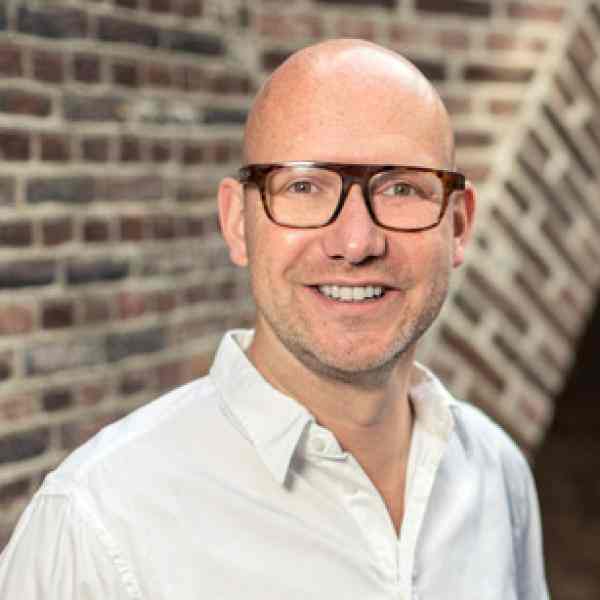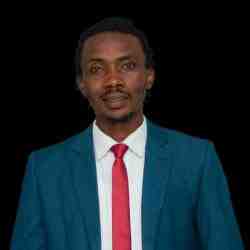Introduction
By innovating a truly sustainable supply chain including the last-mile that is independent of national healthcare systems, Joost van Engen is creating sustainable access to essential medicines, hygiene products and supplements for low income families in remote areas, while at the same time providing health education and basic health consultation, contributing to the quality of their day-to-day lives, specifically for those in remote areas in low and middle income countries.
The New Idea
The innovation behind Healthy Entrepreneurs (HE) is in the creation of a supply chain which is reliable and profitable for each stakeholder, assuring the continuous flow of medicine, health related products and educational content. This enables the basis for mutual trust between HE, micro health entrepreneurs and consumers. Joost implements a supply chain approach devoid of reliance on national health infrastructure, which has historically proven to be corrupt & dysfunctional. As such, Healthy Entrepreneurs offers a sustainable solution to this often ineffective formal health system: they set up central coordination to purchase high quality generic medicine, they independently operate warehouses which always guarantee supply, they offer reliable and innovative distribution combined with last-mile delivery through local sustainable micro health businesses, and create demand through a micro-franchise-model which features micro-entrepreneurs/educators. All of this is facilitated by solar powered tablets that provide educational support, as well as with Enterprise Resource Planning (ERP) software to optimally manage operations.
The Healthy Entrepreneurs approach is reaching the poorest families even in very remote rural areas, where traditional government and NGO approaches have not been able to create lasting impact. It is this systemic change that enables those people who have never been reached by conventional health supply chains, nor development programs, to be granted the basic human right to health. HE operates in Rwanda, Burundi, Democratic Republic of Congo, Uganda and Haiti.
The Problem
At least 1.2 billion people don’t have access to essential health products such as non-prescription medicines, vitamins and other items that improve health quality of life. The inability to meet these standards have far reaching consequences on the individual level, starting with unhealthy lifestyles, too often resulting in early death, a lifetime of suffering from diseases, failure to prevent even the most easily treatable ailments, malnourishment, and vitamin deficiency. The failure to provide health-related education and information causes failure to develop preventive health care, as well as guidance for parents and family planning education and services, robbing people of the very basis and starting point for a healthy lifestyle and health seeking behavior.
A lack of general health and reproductive health education in specific, results in increased economic burden for the family as well as for society, unsustainably high birth-rates, and is putting women at risk (unsafe sex, no control over contraception, unsafe abortion, and unhealthy hygienic practices). Lack of prevention and basic health services is part of the problem that 6% of poor people are tipped into or pushed further into extreme poverty because of health spending (at $1.25/day, at $2/day this number increases to 17%). This holds especially for remote areas where people are not even able to obtain the most basic health information and education.
National health systems for the supply of medication in the region are existent but do not work properly. Health Centers are dependent on the supplies from Regional Health Zones but often they are not operational or have severe shortages of medications, which lead them to buy from the next city market, and any other place where they might possibly be able to obtain medication, without being able to check for the quality of their purchases. WHO estimates that 10%-30% of drugs in the developing countries are counterfeit depending on the region. This means that in the best case scenario 10%-30% of medications are of low efficacy, while in the worst case scenario they are life threatening. If national Health Centers are operational they often are out of stock and refer the patients to the next available hospital. In most cases these are too far away to reach for people in remote areas, carrying significant travel costs and often ask much higher prices for medicine. Health workers in those health centers are often deeply demotivated, since they cannot deliver the care they want to, and the patient is in need of, delivering health education turns out to be dissatisfying if health workers cannot deliver the accompanying medicines and health related products. This intricate web of dysfunction leads to systemic failure of the available health supply system and perpetuates the huge problem that lack of individual access to health constitutes, especially in remote areas.
The Strategy
HE sells its medicines and health related products in a financially sustainable way with the help of franchise micro entrepreneurs who can generate sufficient income. HE offers their entrepreneurs a full health business concept, including a large ‘basket’ of hygiene products, a solar powered tablet for ordering them, and health education module with guided consultation. In this fashion, HE raises awareness for health among otherwise untapped communities, while providing them with the option to actively change their situation (i.e. buy the medicines when in need). The supply of health related products and tailor-made health information meets the people’s needs while adhering to the national regulatory framework and culture. HE is tackling two issues simultaneously – they increase demand by providing health education and increasing the communities’ awareness, and then they offer the supply of health related products to meet this new demand.
HE caters to some of the globally most challenging operating environments, exactly where their products are most needed and have the largest impact. Currently present in Rwanda, Burundi, Democratic Republic of Congo, and Uganda, they also managed to successfully set up operations in Haiti. By the end of 2015 they had 928 micro-entrepreneurs, each of them reaching about 500 direct clients who on average have a family of 5 to 6 persons, resulting in access to medicine for roughly 3000 people per entrepreneur. This amounts to reaching around 2.78 million people in 5 countries since the first entrepreneurs started in August 2012. Alongside this, HE creates jobs for these local entrepreneurs earning on average $48 USD per month, which is twice the modal income in the central African region, thus providing them with a single sustainable source of income. 50% of their pay is performance based, making training and further education programs more attractive, therefore adding to the individual skillset of the entrepreneurs. Looking at the long term acceptance and sustainability of the micro-health franchise approach, HE shows that from all entrepreneurs who started in August 2012, retention rates range from 90% to 97% depending on the region.
Healthy Entrepreneurs offers their micro health entrepreneurs a full health business concept, including a diverse basket of medicines and health and hygiene related products including some more profitable life style products such as nail polish, candles and headphones, and - for example - a Wakati tent to keep vegetables fresh for longer, a direct response to the consumers’ need for healthier food. The micro health entrepreneur can add more products to this basket when consumers demand it. All activities are facilitated by a tablet, which is used to place orders, organize pick-up of new stock and most importantly, also fills the need for a portable education device. HE is the only organization which supplies medicine and includes an array of educational material in their offering. Their health education includes 104 educational videos teaching lessons designed in accordance with WHO and UNICEF standards on topics such as sexuality and reproductive health.
To complement the video material, HE offers 58 “flows”, which are self-guided diagnostic questionnaires that lead to specific educational material and higher quality treatment. All topics are on general and reproductive health, starring locals in familiar situations using local language(s) on relevant topics to make sure the message is spread in the most accessible way possible. In the last three years, HE has reached 324,675 people with their educational movies on sexuality, and has given consultation on the use of contraceptives to 92,965 people in the same time span. Their education approach is non-discriminatory, open for all, and as a consequence their impact is huge on sexuality education for (unmarried) youth. A group at risk if it comes to STD’s and for which the formal, regular health channel (clinics) is not accessible.
HE is currently also looking at ways to make a preventative health impact by nutrition related products. Already including packages of vitamin enriches spice mixes, HE is also considering selling small and affordable quantities of seeds and fertilizer to allow people to grow better crops in their garden. Information packages in the tablet will expand to help people recognize the warning signs of malnutrition, an initiative which will help the UNICEF initiative to prevent anemia in pregnant women. Joost is constantly looking for ways to improve the role HE can play in ensuring health. The model has a strong emphasis on the value of primary preventative measures in ensuring health standards.
In order to deliver the best service possible, HE has country offices or partners in all countries they operate in, important for recruitment, selection, training, distribution, and forecasting. HE also has their own warehouse facility in the great lakes region and in Haiti, and maintains local storage facilities in all countries they operate in. The central purchase of medicines, provides the benefits of quantity purchase, i.e. low prices, quality assurance, resulting in high quality, low-priced products and reliable supply through regional warehouses.
Their solar powered tablet, which all entrepreneurs carry, features four core functions: an education application, a counselling application, the product catalogue with fixed prices, and a stock management application supporting the entrepreneur in all business operations, including replenishment of stock, turnover, online ordering. At the moment, Healthy Entrepreneurs is testing the connectivity between the Enterprise Resource Planning (ERP) system and online ordering by entrepreneur using the tablet.
The strengths of using online ordering include: minimizing errors in the ordering process, less coordination required for management of orders, and less work to enter all orders in the system at country office levels. Meanwhile, the ERP system offers unique insights by analyzing health educational data, how many consultations took place, and what educational movies were shown, etc.
Healthy Entrepreneurs features two types of franchises: HE bicycle entrepreneur, and HE pharmacy-in-a- box, which offers products ranging from essential non-prescription drugs to women’s products and other sanitary and health products, shampoo, toothbrushes, nutrition sachets, adapted to local cuisine which are all packaged to the needs and likings of the end customer. HE has the unique ability to supply these items as they are in full control of their supply chain including inventory choice. The distribution system HE is applying to supply their products to the last mile is very adaptive and gives a lot of freedom to the entrepreneur. Joost’s creative capacity and intricate knowledge and experience in business supply chains allows him to innovate complicated activities in such a way that they become extremely simple and transferrable.
Joost co-founded HE as a not-for-profit foundation, with the sole mission to improving access to reliable and affordable essential medicines, health products and health information for families in developing countries. To realize this mission in a financially sustainable and scalable manner, HE added a for-profit entity with a social mission as well, to centrally purchase the required high-quality, low-cost medicines and health related products, supply the regional/local warehouses, keep stock, coordinate supply chain with local offices, distribute the last mile, and set-up franchise micro health entrepreneurs.
The social enterprise was created in November 2011 starting in Haiti, to work on the “prerequisite” for a network of micro franchises, and organizing on the ground so that the distribution unit guaranteed availability of all health commodities. In partnership with business partners, Haiti Medicine was born, a warehouse was constructed in order to get authorization to store health commodities, and HE started the registration process to get authorization to import medicines. The registration process took more time than expected and therefore the decision to start running the network of micro entrepreneurs was postponed. However, at the same time Joost started a pilot in Eastern Congo; in the province of South Kivu, a particularly challenging area, where the first entrepreneurs started in August 2012, without having the complete warehouse in place. 90% of the entrepreneurs that started there in 2012 are still active. Over time HE optimized and developed a system to roll out new networks of micro entrepreneurs by using third parties instead of constructing new facilities. In Haiti the first entrepreneurs started in 2014 and already more than 300 entrepreneurs are now active.
The Person
Joost’s was raised religiously by a modern ecumenical family and conversations at the dinner table as well as in church often revolved around global problems and potential solutions. Furthermore, Nico Roozen, Director of the Dutch ecumenical development organization Solidaridad and co-founder of the Max Havelaar label, the first fair trade label of its kind, was also a member of his church. Nico often frequently gave speeches about the inequality between the rich and poor, his experience in developing countries, while at the same time providing solutions for changing the status quo and leading by example. Hearing these stories inspired Joost greatly. This experience was very formative for Joost and left him with a feeling of unease whenever he was pursuing something that was not directly contributing to the life of others.
After his school years he moved on studying Business Administration and did a leadership traineeship at an organization focusing on young leadership development, before he became the export manager for a Dutch food group with a global presence. Selling mostly canned meat products brought Joost to work in the EMEA region, Central America and East, quickly developing cultural sensitivity and people skills but also learning how to do business effectively in all types of environments. This led him to develop his philosophy for a very lean and non-hierarchical organizational design. Over the years, Joost sharpened his creative and organizational skills. He was involved with several startups with activities ranging from importing the first Aloe Vera drinks to the Netherlands.
These initiatives however did not fulfill his inherent need to make a positive impact on people’s lives. Joost found this in his first encounter with the social business concept through the initiative “Dare to be Fair.” Joost worked here for 3 years, ensuring that cotton farmers in Mali were able to gain fair wages in producing environmentally safe cotton for online stores. The same process is still being used by social fashion startups in the Netherlands such as ‘Miss Green.” Joost left this position to become the Manager of Business Development for francophone Africa and later on global Manager of Sales and Marketing with IDA Foundation, a foundation aiming at supplying essential generic drugs and medical supplies to international NGO’s and national government in 139 countries. While at IDA Foundation he did feel that he was making a positive impact on people’s lives. The main focus of IDA foundation is to supply national warehouses with high quality low priced essential medicines, but Joost witnessed how often those medicines did not reach the people. Joost was increasingly getting frustrated with the at times lengthy procedures and inefficient reality of supplying medicine and health supplies to the people in desperate need of them. He started thinking about this problem with greater focus until he came up with the idea for Healthy Entrepreneurs. He then quickly resigned from IDA Foundation to put Healthy Entrepreneurs into practice, together with his co-founder Maarten, who was also previously at the IDA Foundation.




